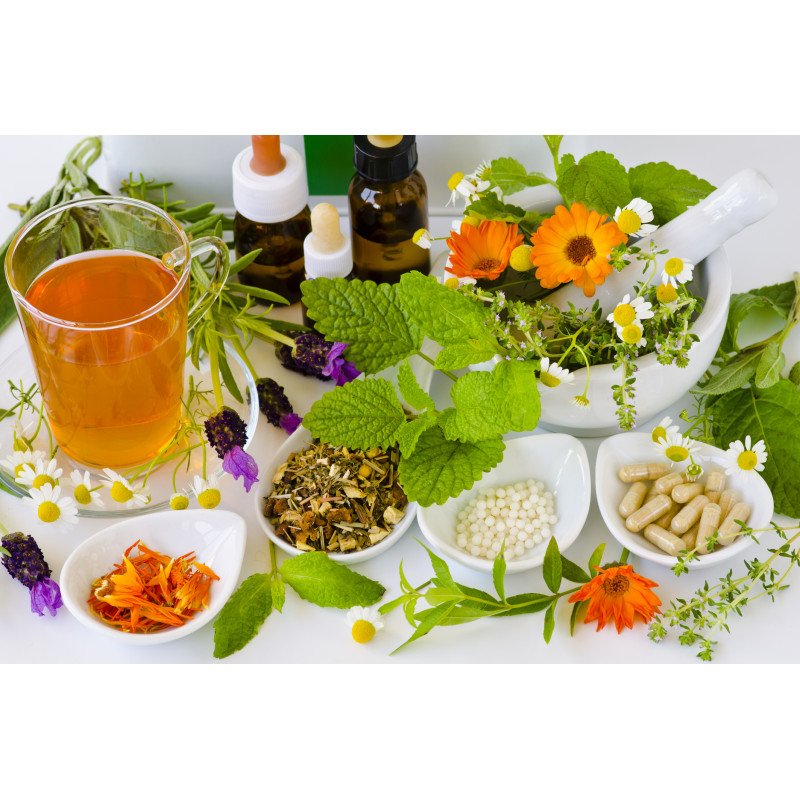
Ayurvedic medication known as nirgundi is created from the dried leaves of Vitex negundo (Family Verbenaceae), a huge, fragrant shrub or small tree that may grow to a height of 4.5 metres and is found all throughout the nation up to an elevation of 1500 metres in the outer Himalayas.It belongs to a broad family of plants, shrubs, and trees and is frequently referred to as "Five Leaved Chaste Trees."
In Sanskrit, Vitex negundo is known by the common names Nirgundi and Sindhuvara. Traditional medical systems like Ayurveda, Unani, and Siddha are already using nigundi in their clinical settings.
Nirgundi's fruits, bark, and roots could all be therapeutic. The herbal remedy known as "Dashamularishta," which contains nirgundi roots as one of its constituents, may be used to treat colitis, dysentery, diarrhoea, flatulence, fever, vomiting, and colic.
Nirgundi's leaves include the alkaloid nisindine, flavonoids including flavones, an essential oil called luteolin-7-glycoside, as well as other components like vitamin C and carotene that are responsible for a variety of biological functions.
Nirgundi essential oil may exhibit antibacterial activity against B. subtilis, S. aureus, E. coli, and P. aeruginosa.
These are possible uses for nirgundi for infections. This anti-bacterial effect may be attributed to the phytoconstituents d-guaiene, germacrene D, and hexadecenoic acid present in nirgundi.
A novel flavone glycoside found in the leaf extracts may have antifungal properties against Trichophyton mentagrophytes and Cryptococcus neoformans.
Never take nirgundi or any other herb for an infection or any other disease without consulting your doctor first.
Possible Use for Nigundi as An Antioxidant:
Nirgundi's water-soluble components may have strong antioxidant properties. Studies on humans may show that it works there. In order to receive better advice and medications tailored to your situation, you must speak with your healthcare professional.
1. Possible Applications of Nirgundi for Pain:
Fresh leaves of nirgundi have anti-inflammatory and pain-relieving properties, which can be ascribed to the inhibition of prostaglandin formation.
The effectiveness of an extract of V. negundo in alleviating pain in animals was compared to that of aspirin and meperidine.
According to the study's findings, Nirgundi leaves exhibited potent analgesic properties and might be used in conjunction with conventional analgesics as adjuvant therapy.
Although further research is required to determine the herb's impact on humans, you should still seek the opinion of a licenced physician.
Potential Liver Benefits of Nirgundi: Research has shown that nigundi seed extracts lower serum levels of the enzymes aspartate transaminase and alanine transaminase.
Additionally, the alcoholic seed extract demonstrated liver protection against liver damage brought on by carbon tetrachloride (CCL4). To demonstrate these benefits of nirgundi for the treatment of liver diseases, more research is necessary.
2. Potential Applications of Nirgundi for Arthritis:
The heated leaf can be used to treat sprains and discomfort brought on by rheumatoid arthritis.
You can also utilise the leaf oil that has been made. To determine the herb's impact on people, more research is nonetheless required.
You should seek medical counsel from a licenced doctor if you or a loved one has arthritis.
3. Nirgundi Root Decoction for Lungs:
Nirgundi root decoction can be used to treat asthma and bronchitis.
However, there is no accessible scientific proof to support this nirgundi advantage.
4. Benefits of Nirgundi for Diabetes:
Animal studies have shown that nirgundi leaf extracts have anti-hyperglycemic properties. We might need further research to demonstrate the effectiveness of these benefits in people.
5. Nirgundi Leaf Extract for Wounds:
Nirgundi leaf extract can be used to wash wounds to help clean infected ulcers. We might need further research to demonstrate the effectiveness of these benefits in people.
Nirgundi leaf juice has the potential to be useful in treating bacterial and parasite skin diseases. Leprosy and skin conditions may be somewhat affected by nigundi seeds. Before applying anything to your skin, consult a doctor.
4 Comment(s)
Passersby noticed this watch on my wrist as I walked. It generated excitement when I showed it to those I interviewed in Times Square. I was almost proud to reveal it to them – like I had some kind of treasure on my wrist. I imagine this is what it feels like to wear a Tiffany Nautilus or any Richard Mille. Oh, except this one costs $260, remember? This is nuts, and I love it.
In addition to the two straps mentioned above the watch also comes with a special NATO-style strap. It's called the Mankei strap, and it's named after the new international meeting spot for motorsports fans. It is crafted in the same calfskin used in the interiors of Porsche sports cars in a green color (Pantone 7537 C) that matches the facade of the namesake restaurant. And the cherry on top is an incredible display box that includes a commemorative acrylic badge.
There is a specificity to Serica's watches that I really like. Their watches are tasteful, fun, and feel unique both in look and wrist presence. While I would personally opt for the 5303 diver <a href="https://git.unpas.dev/eedgardoz" >link</a> that can easily do a second timezone via its twin-scale bezel, the handsome 8315 is a direct evolution of that same watch and this new Serica GMT lacks very little in terms of raw enthusiast appeal, timezone-friendly functionality, and old-school mid-century charisma.
Now, the Turn-O-Graph sits at the National September 11 Memorial Museum, smashed, burnt, without its crystal, and frozen in time to the moment when he helped lead a charge that made him and the others on board heroes.
Leave a Comment